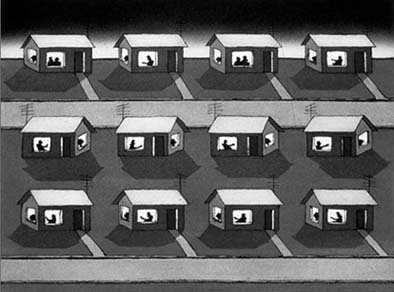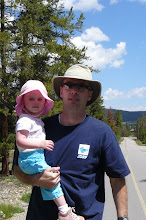The following is my sermon for August 28th. This is a rural congregation and my first time preaching before them. The texts are taken from the lectionary (RCL Cycle:A, 15th Sunday after Pentecost). It should be an interesting Sunday ;).I read in the Denver Post on Tuesday that a nationally known televangelist had called for the assassination of Hugo Chavez, the leader of Venezuela. Now Hugo Chavez may not be the best of political leaders, but when a Christian minister calls for our country to kill someone for their ideological beliefs I have to question what they are emulating and teaching the members of their congregation.
And on a larger scale, I really wonder how this differs from the cries of terrorists around the world? Leaning on religious zealotry and abhorrent theological conclusions that create an atmosphere of unrest and intolerance sounds like a familiar condemnation doesn’t it?
Mostly, I seem to have forgotten which one of Jesus’ teaching moments or sermons this position mirrors. And despite a subsequent apology, histhe words are out there and cannot be retracted and there has been little call for accountability. Anne Lamott a Presbyterian author once said, “You can safely assume that you've created God in your own image when it turns out that God hates all the same people you do.”
Let’s turn to Matthew for a moment; we’ll talk about this story a little later. What we have in Matthew is a passage foreshadowing Jesus’ suffering and death in Jerusalem. The expectation of the Messiah in Jewish theology was that he would be a great leader and conqueror, not a suffering servant. Peter’s words are not out of order in this context.
Jesus’ admonishment given is adequate as well. Peter is thinking in earthly tones, just as all theology is an earthly pursuit. Peter merely repeats what he has been taught, and seeks to have Jesus conform to those ideas, not unlike our televangelist.
I can even see Peter waving a finger in front Jesus’ face, “There is to be no suffering for the Messiah. No, the Messiah is to cause suffering to the enemies of the Jewish state.”
Jesus’ response is simple and to the point: don’t limit what I will do by thinking of it in earthly terms. God’s ideas are greater than anything conceived by humans.
Whether you are a televangelist with a penchant for shooting your mouth off, or a disciple with a knack for not getting the message, or even a congregation member just trying to do the right thing and get along in the world, there something to this idea that God has greater plans than we can conceive.
When we lived in Richmond, my wife, worked for the Richmond Ballet for a couple of years. Part of my duty as her husband was to attend the ballet with her occasionally. Whenever a show time would come around, I would begin to behave a bit like a two-year old complaining about not wanting to go, having to go, having to dress up and shower and shave.
Once I got there though, things changed. I can’t say that the ballet was always a great experience, but there were times, moments, when the choreography, the music, the movement of dancers and lights would come together to create something that was greater than the sum of its parts. In these moments, I truly enjoyed the ballet, allowing it to bring tears to my eyes and soothe my soul.
I wonder if this is why we often refer to dancers as graceful, because somewhere between what they do and what we see and experience, a connection greater than expected occurs.
Both Paul and the author of Matthew attend to this phenomenon of greater things in our passages today. The author of Matthew attends to it in the context of the cross, of attempting to get across to finite human beings the grand scope of God’s work in the world. The idea that we are to accept something contrary to common sense, knowledge and teaching is so foreign to Peter, that he cannot fathom the scope of the grandest of plans.
Grace is that way as well. It is the mysterious dance God choreographs with humanity that when our eyes meet we immediately know that something greater has occurred. Grace is fluid and moves in and around all lives to a hidden symphony created through a partnership with the Creator. And while Matthew points us towards the phenomenon, Paul tells us what happens to us when we experience the Lord of the Dance.
Paul attends to this greatest of plans by describing an ethic of life to the Roman Christians. It is how Paul thinks they should respond to the grace they have received in their lives. No single thing that Paul said is intended to be the penultimate act of a Christian, but instead he creates a balance between the different reactions to the grace that happens in our lives.
Love, goodness, honor, passion, service, hope, rejoicing, harmony, humility, peacefulness and forgiveness, it’s not a short list, nor is it an easy list to live up to. And, I could be convinced that one of the greatest curses of humanity is to know the importance of these things and to be impotent in carrying all of them out.
But, that is another of the grandest functions of grace, a gift of God fashioned for a people in need. Grace offers the coverage necessary to allow us to continue to live a life more meaningful and complete. Humanity has a hard time grasping this free gift, and the grand idea behind it, so like the televangelist and Peter we try to limit its scope and who receives it. Never understanding the limitless boundaries of grace, and that what God has created for us, given to us, is so abundant that it is never meant to be kept by us.
One of my favorite hymns has the following refrain:
Dance, then, wherever you may be;
I am the Lord of the Dance, said he,
And I'll lead you all, wherever you may be,
And I'll lead you all in the dance, said he. The dance of grace is probably the most important one in which we will ever have a part; and that is just it, we only have a part. We are not the keepers, the choreographers, or conductor. We are bit players cast in order to make the prima ballerina look her best.
We can only do our little part of the dance. There isn’t a single prima ballerina in the congregation today. However, every single one of us has a part that is important and the dance could not continue unless we arrive on cue.
Paul knows that times will be difficult, he knows that sometimes people will repay our kindness and our gentleness with animosity or even hatred. But he calls us to focus on our part in the dance, let the prima ballerina do her job. We must, with all of the passion our lives can muster, dance with all of our hearts, minds, souls, and strength. Or else, all of the grace we have received is for naught.
There can be no perfect performances, but there are times when our passion compliments the dance of the prima ballerina so much that the audience is moved to tears and their souls are soothed once again.



